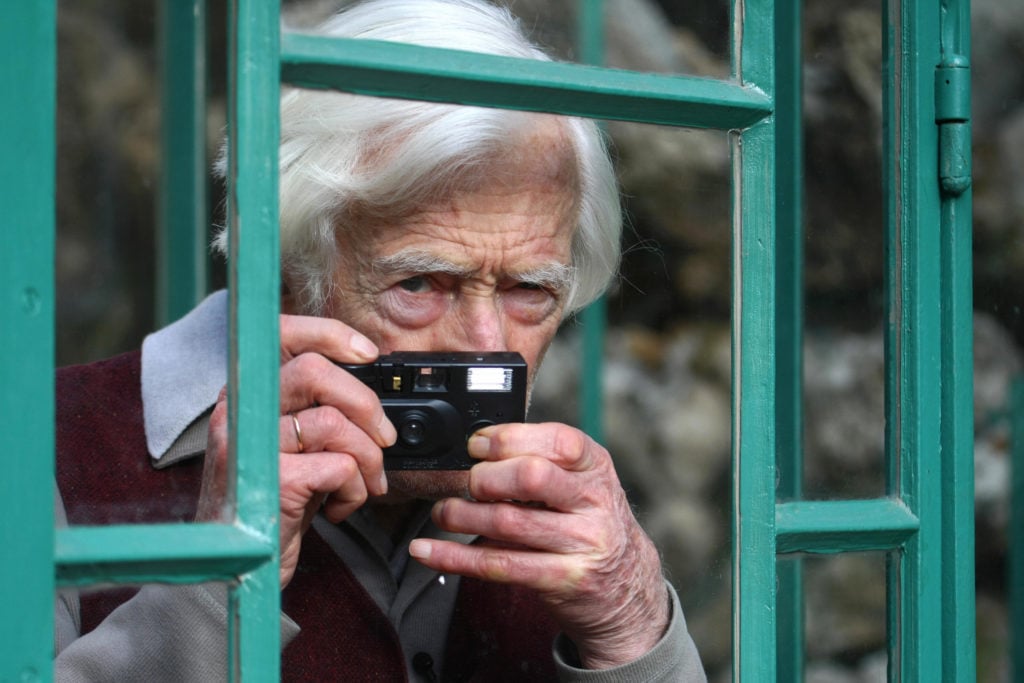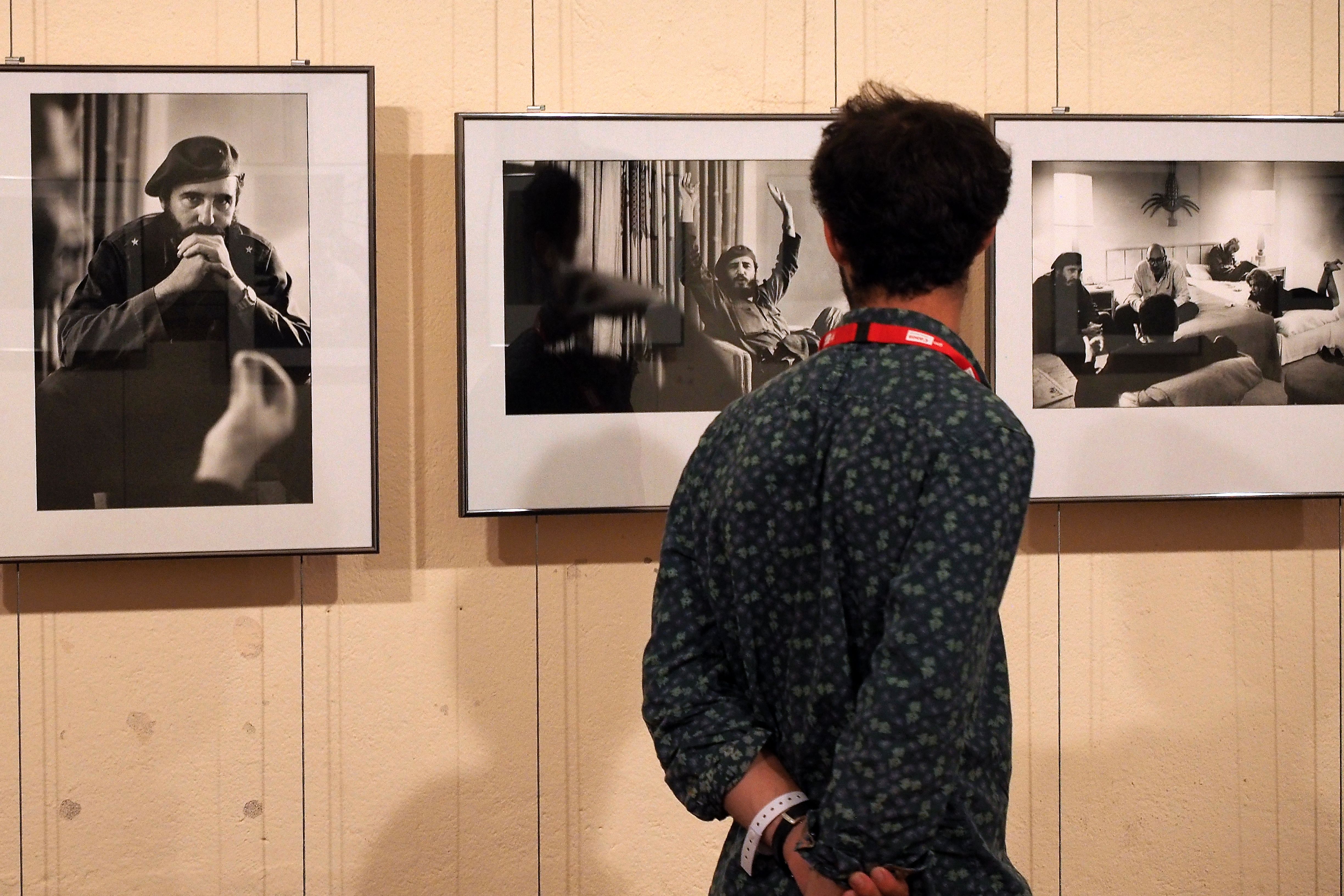People
French ‘Flower Girl’ Photographer Marc Riboud Dead at 93
He said he took pictures 'like a musician hums.'

He said he took pictures 'like a musician hums.'

Naomi Rea

The celebrated French photojournalist Marc Riboud has died on Tuesday, August 30, aged 93, following a long illness, AFP reports.
Riboud was perhaps best known for his iconic 1967 photograph of a Vietnam War protester meeting armed US soldiers at the Pentagon with a flower. La Jeune Fille a la Fleur (The Flower Girl) became an era-defining photo that captured the non-violent activism and “flower power” movement of the late 60s.
The Lyon-born photographer began taking pictures at the age of 14 with a Vest Pocket Kodak gifted to him by his father, and the hobby developed into an inimitable talent for black and white photography.
During his lifetime, he was extolled for the incredible sensitivity he displayed towards his subjects and the remarkable nuance of his work as well as his impressive feats of global reportage. His photos have been published in Life, Paris Match, Stern, Géo, and The New Observer, and have been shown in galleries and museums around the world. Riboud was also the laureate of numerous prizes, most recently receiving the Nadar Prize in 2012 for his book Into the Orient.
Alain Genestar, former editor of Paris Match, said Riboud “was a great photographer, poet and humanist… with a unique signature: a respect and love for people who bore witness to their daily lives and suffering around the world.”

A visitor looks at photographs at the exhibition “Cuba” by French photographer and reporter Marc Riboud, on August 31, 2016, during the 28th Visa pour l’Image international festival of photojournalism in Perpignan, southern France.
Photo: RAYMOND ROIG/AFP/Getty Images.
Well-known for saying that he took photos “like a musician hums,” Riboud was prolific and daring in his work. In 1957 he was among the first Europeans to travel to Communist China; he later worked in Algeria and sub-Saharan Africa during their bids for independence in the 60s, and he was one of the few photojournalists to enter North Vietnam in the latter half of the same decade.
In 1953, Riboud was invited to join the prestigious Magnum agency by its founders and photography titans Henri-Cartier Bresson and Robert Capa. He later headed the agency for two years from 1974 but resigned from the high-status group in 1979, saying he “didn’t like the competition for glory” that it nurtured.
Riboud’s work in Cuba in 1963, notably featuring his portrait of Fidel Castro on the eve of JFK’s assassination, is currently the subject of the Visa pour l’Image photojournalism festival in the southern French town of Perpignan.
“He was a great humanist and a great guy,” festival director Jean-Francois Leroy told AFP. “Many photographers were inspired by him without ever equaling him.”